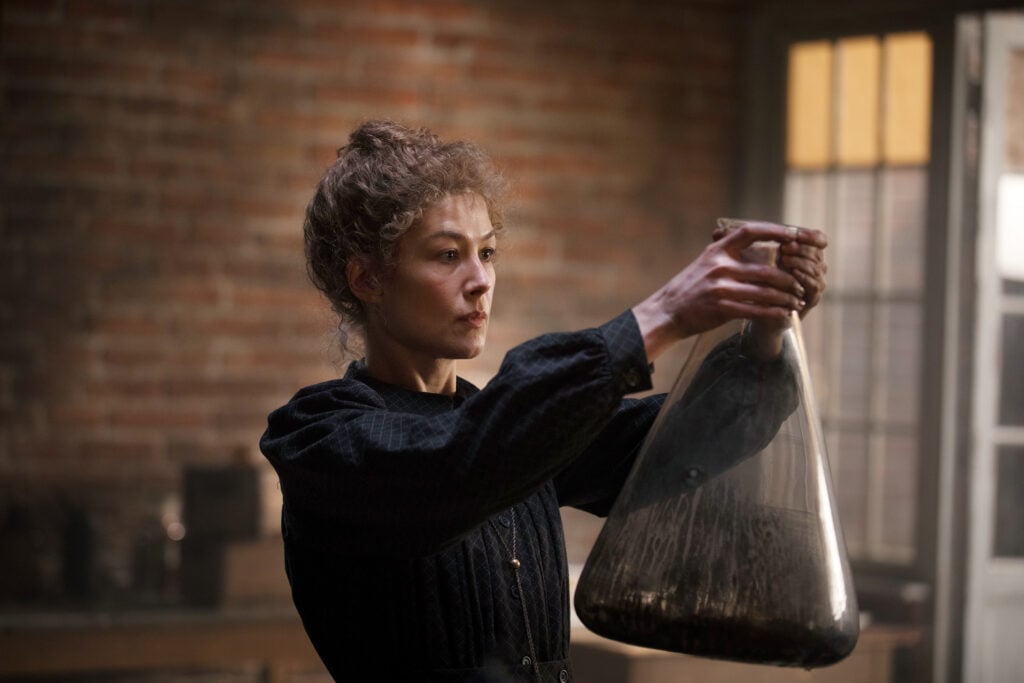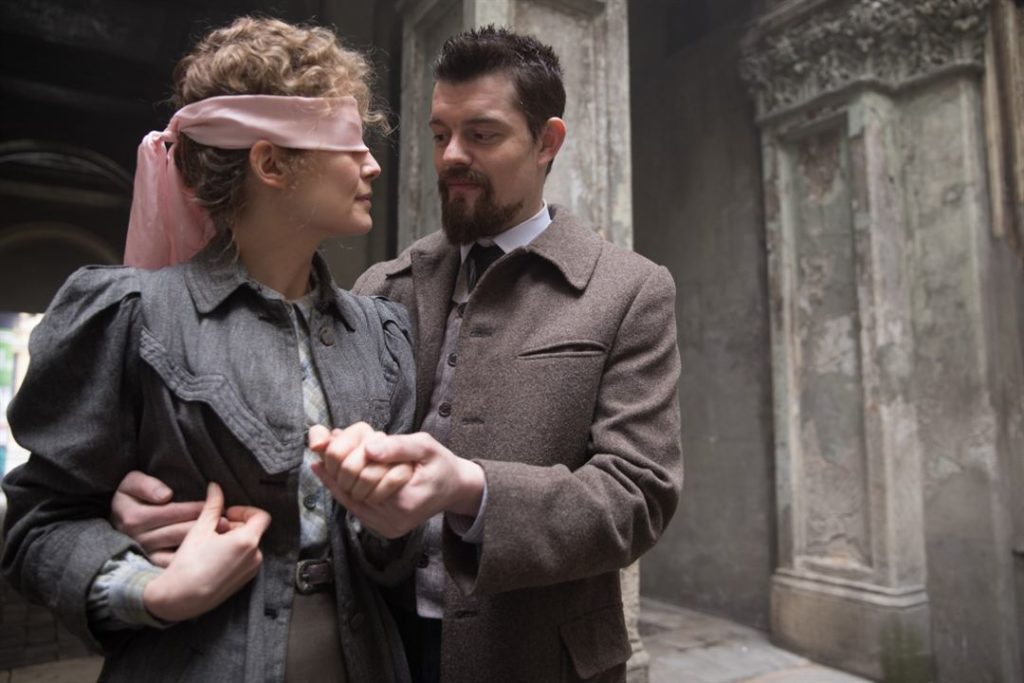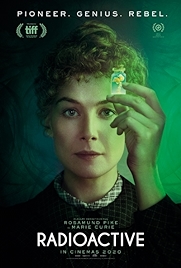Radioactive is a biopic, and Marie Curie is its subject. An interesting proposition – most people know the name Curie but who knows anything about the actual woman? She discovered radiation, or radium, or X rays, or something, the general level of ignorance about Curie’s life making the default of the biopic – leaping from one headline event to the next – impossible.
It sets writer Jack Thorne, director Marjane Satrapi and, to a slightly lesser extent, actor Rosamund Pike free to do what they want. And what they want to do is celebrate the woman as a force of nature, a scientific marvel, a tireless worker and an iconoclast who took on the male establishment, was defeated by them and then came back for more.
What they don’t particularly want to do is mess the story up by getting too fancy. Apart from the fact that we start at the end – old Marie being rushed into hospital – the story progresses in linear fashion, kicking off with self-absorbed, serious young Marie Skłodowska moving from Warsaw to Paris, meeting fellow researcher Pierre Curie (Sam Riley), marrying and having children and then the two of them embarking on a life’s work that will result in the discovery of polonium and radium and the winning of the Nobel Prize.
The real struggle, though, is not against ignorance but the patriarchy. Though Pierre and Marie are very much a marriage of equals (which is putting it graciously, since she’s smarter and more driven than he is), the outside world sees it differently. When the Légion d’Honneur award is offered, Pierre refuses, because Marie is not included. When the Nobel committee come calling, the Curies share the award, at his insistence, but on the podium accepting it is Pierre alone.
The other thing we might know is that radiation killed either Pierre or Marie or maybe both of them. It would have killed both eventually, so the movie tells us, but in fact Pierre died under the wheels of a horse and carriage before the cancer could take him, driving Marie eventually into the arms of a married colleague (Aneurin Barnard). This, along with Marie’s Jewishness, were also used as a weapon against her.
Director Satrapi, best known for the graphic novel Persepolis and its film adaptation, brings some of that freeform verve to what is often a lifeless genre (ironically, since it’s all about lives), adding in graphic novel cutaway moments, like the radium that Marie and Pierre take to bed with them at one point, the bottle glowing like kryptonite, and she buzzes forwards briefly to the world that the Curies’ discoveries would usher in – cancer therapy, the A bomb, Chernobyl. It’s a mixed tally.
Pike is a fine and feisty Curie and she rises to the occasion in Marie’s many battles against the beards, but the film has told its story once Pierre dies. Rather than admit that Marie Curie’s major breakthroughs were done early, alongside Pierre, Jack Thorne’s screenplay protests slightly too much by insisting that the back end of the life was as fascinating.
Thorne’s use of the phrase “the science” is a bit anachronistic. People did not “do science” in Curie’s time. They conducted experiments, and science (ie knowledge) was what resulted. A more major quibble is that, though Satrapi’s visuals are gorgeous, and Pike is impressively forceful in a faintly Asperger-y way, the film does not quite convey the enormity of Curie’s achievement, because it shies away, ironically, from the “science” – it took one tonne of pitchblende to produce one tenth of a gramme of radium chloride and the work was unpleasant and life-shortening.
Satrapi makes amends, to an extent, in a classic “a picture is worth a thousand words” flourish towards the end, by flashing up a photograph of the Solvay Conference in 1927. Seventeen of the 29 Solvay attendees would go on to win Nobel prizes, among them Werner Heisenberg, Niels Bohr and Albert Einstein. Marie is the only woman in the picture, and she was the only one among them to have won Nobels in two different fields. That’s worth a movie.
Radioactive – Watch it/buy it at Amazon
I am an Amazon affiliate
© Steve Morrissey 2021


